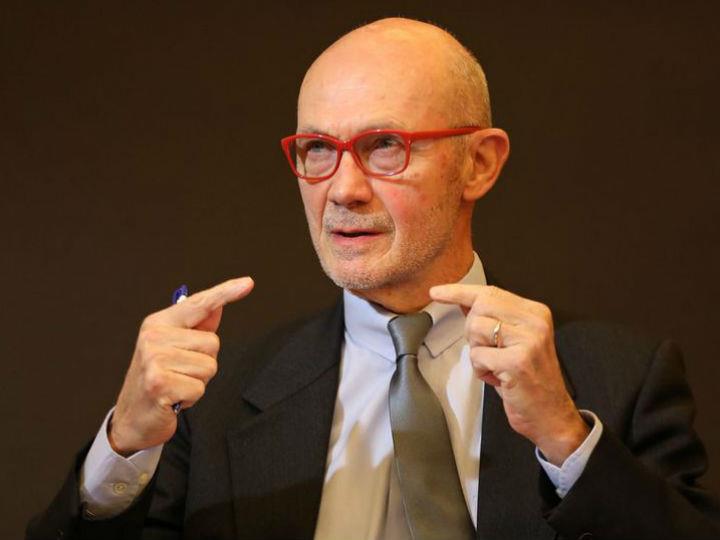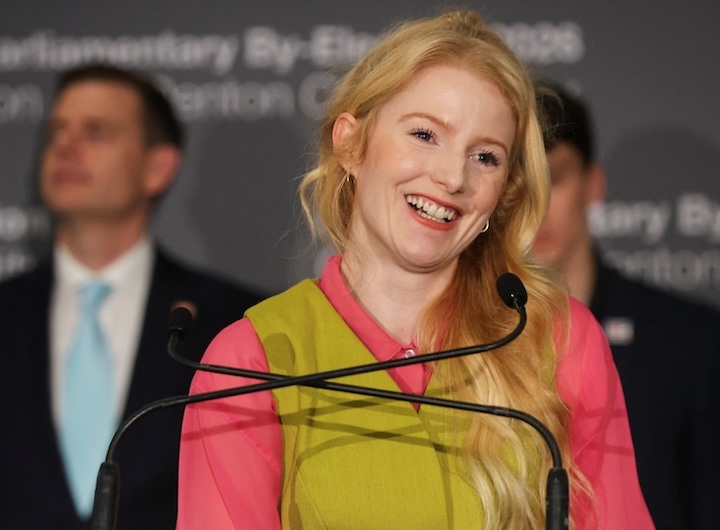by Pascal Lamy*
In the turbulent waters of today’s global economy, many Europeans feel adrift. The captains of our ship—our Heads of State and governments and top ministers—have not done enough to stabilise the vessel and confidently chart a course towards safety. As we weather the storm, lurching from the whitecapped swell of one crisis to the next, there’s a growing fear that Europe doesn’t know how to steer towards safe harbour.
Climate action can be the polestar. A net-zero emissions strategy should be the course we follow out of the chaos and into a stable and prosperous future.
It’s true that Europe has long been a global leader on climate action—playing a crucial role in the adoption of the Paris Agreement, making the strongest emissions reductions pledges in the developed world, and promising billions to lesser developed nations to help them both combat and prepare for future climate chaos.
However, European leaders have largely failed to effectively link these political climate ambitions to a coherent industrial strategy.
It’s high time that we make that connection. For Europe to survive—and indeed, thrive—in a carbon-constrained future, we must formally commit to reaching net zero emissions by 2050 at the latest, and adopt a long-term strategy, and legal framework to guide us towards this goal. Our economic competitiveness for the next century depends on such an integrated, EU-wide strategy that will unleash Europe’s industrial potential in combating the climate threat.
Without such a strategy, we risk losing out on the greatest economic opportunity of the 21st century. Explicitly planning for net zero reveals the huge extent of the technological innovation and deployment needed. China is currently investing massively in the low-carbon future—from renewable energy resources to electric vehicles and battery storage, and even the development of low carbon steel and other materials science advances.
There are already signs of low-carbon leakage from the United States and Europe, as some clean energy companies are offshoring their operations to China’s industrial regions, which are today more competitive in low-carbon innovation.
While China’s burgeoning low-carbon economy is clearly a blessing to the world in terms of climate mitigation, it also threatens Europe’s future as a foundational economic force globally. Simply put: we need Europeans to be designing, manufacturing, and installing the low-carbon technologies that will drive Europe’s clean energy future.
There is still time, and plenty of opportunity. European countries are still well-positioned to lead on renewable energy generation in the electric sector, in the electrification of transportation and building systems, and in low-carbon industrial processes.
But to remain on the forefront globally, these economic opportunities must be firmly linked to both the EU’s emission reduction goals and also to a long-term vision that is coherent and clearly defined. Only by formally and explicitly linking these industries to Europe’s mid-century economic strategies can the technologies be deployed at the speed and scale necessary to lead the world into a net zero emissions future.
If Europe’s leaders have been waiting for political cover, they surely have it now. The elections of May this year provided a clear mandate for strong climate action, with Green parties securing historic levels of representation, and climate change ranking consistently atop the concerns stated by voters throughout Europe. Student protests and mass mobilisations demanding climate action are continuing at an unprecedented scale.
Responding to the will of the people, upon her election to lead the European Commission, Ursula von der Leyen promised a “Green Deal” for Europe within the first 100 days of the new term, and reaffirmed her campaign promise to craft legislation for Europe to achieve carbon neutrality by mid-century.
The starting point for such a strong pledge has to be?a clear long-term decarbonisation strategy. The European Commission has put forward robust proposals for just such a strategy, which in June of this year attracted the support of twenty-four out of twenty-eight of the EU member states. Unfortunately however it could not be unanimously adopted, as Poland, Czech Republic, Hungary and Estonia held out against it. In the meantime, Estonia joined the carbon neutrality camp.
It is vital that, by the time EU leaders discuss the strategy again in December, these three remaining countries will have joined their counterparts in recognising the necessity and the opportunity of putting Europe on a course towards climate stability and economic prosperity for all.
Ultimately, this strategy will need to align new, robust governance structures at both the nation state and EU levels. Paired with well-designed policies and investment signals, these structures could deliver precisely the European public goods and industrial boost that European citizens are now demanding.
A strong decarbonisation strategy could renew the whole of the European project itself, alighting a new vision every bit as ambitious as that of the European Union’s original founders.
*President emeritus of the Jacques Delors Institute, former EU Trade Commissioner and former Director General of the WTO
**first published in: www.euractiv.com




 By: N. Peter Kramer
By: N. Peter Kramer
